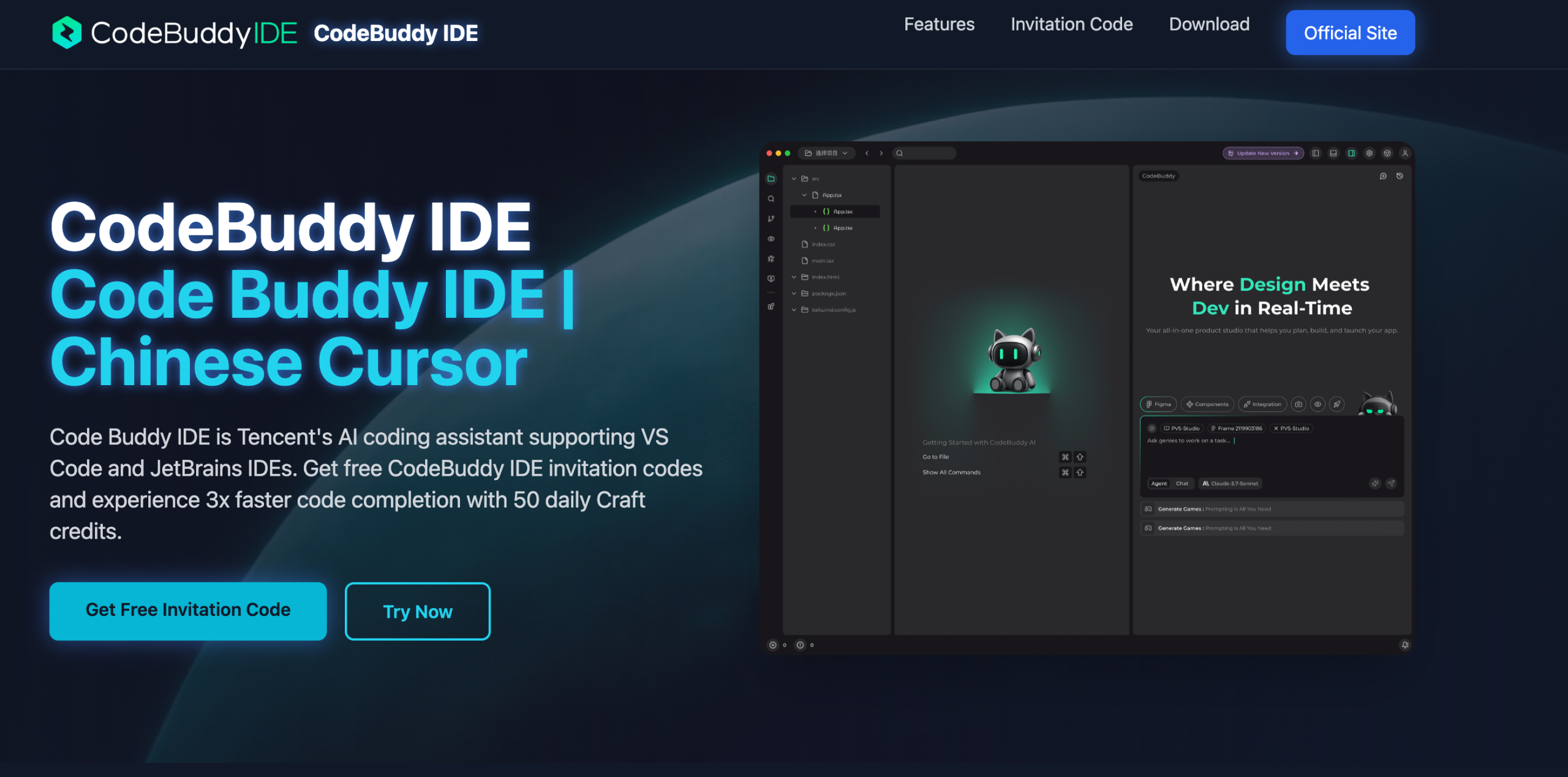One sentence in natural language, a live app in ten minutes—AI is redefining who qualifies as a “developer.”
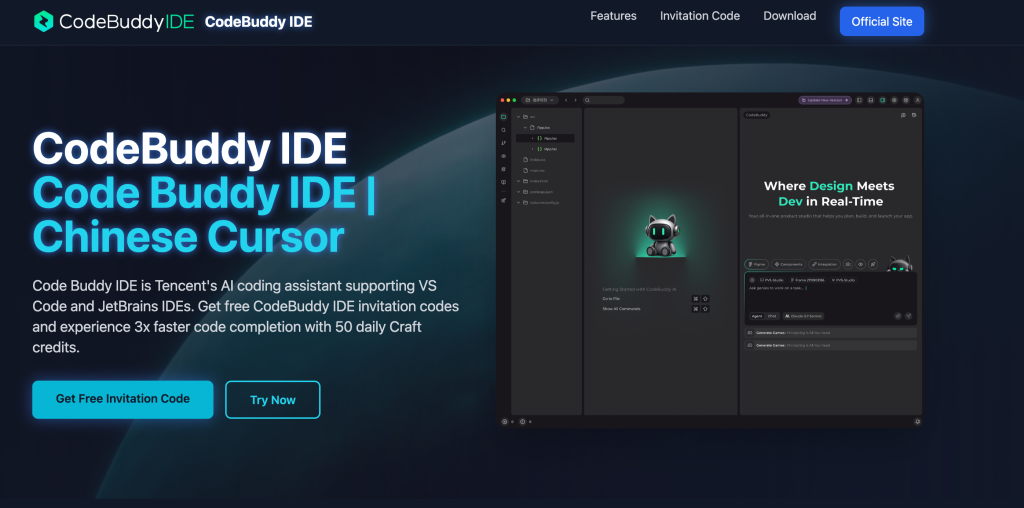
In July 2025, Tencent launched CodeBuddy IDE, declaring itself the “world’s first AI full-stack engineer unifying product, design, and development.” While traditional developers debate whether AI can replace coding, CodeBuddy has quietly reengineered the entire software production chain: Product managers generate PRDs with one sentence, designers turn Figma drafts into runnable code instantly, and non-technical users deploy full apps in three clicks.
Ⅰ. CodeBuddy’s Essence: The “Universal Translator” for Product-Design-Tech
Unlike most AI coding tools, CodeBuddy’s ambition extends far beyond writing code. It targets the most persistent pain point in software: collaboration gaps between product, design, and engineering.
- Product Planning Revolution
Traditional PRDs take hours or days. CodeBuddy’s Plan Mode needs inputs like “build a pet encyclopedia site” to instantly output feature lists, flowcharts, and API drafts. In one e-commerce case, product scoping shrank from half a day to 10 minutes. - Seamless Design-to-Code
Uploaded Figma files auto-convert to frontend components. A Pokémon Pokédex design became precise Vue3+Tailwind code—including dynamic features like background color switching—eliminating rework caused by miscommunication. - Full-Stack Simplification
When asked to “build a Flask data visualization tool,” CodeBuddy generated Python backends, auto-connected Tencent’s CloudBase database, and debugged data-matching algorithms. The 30-minute process left only minor issues like font encoding.
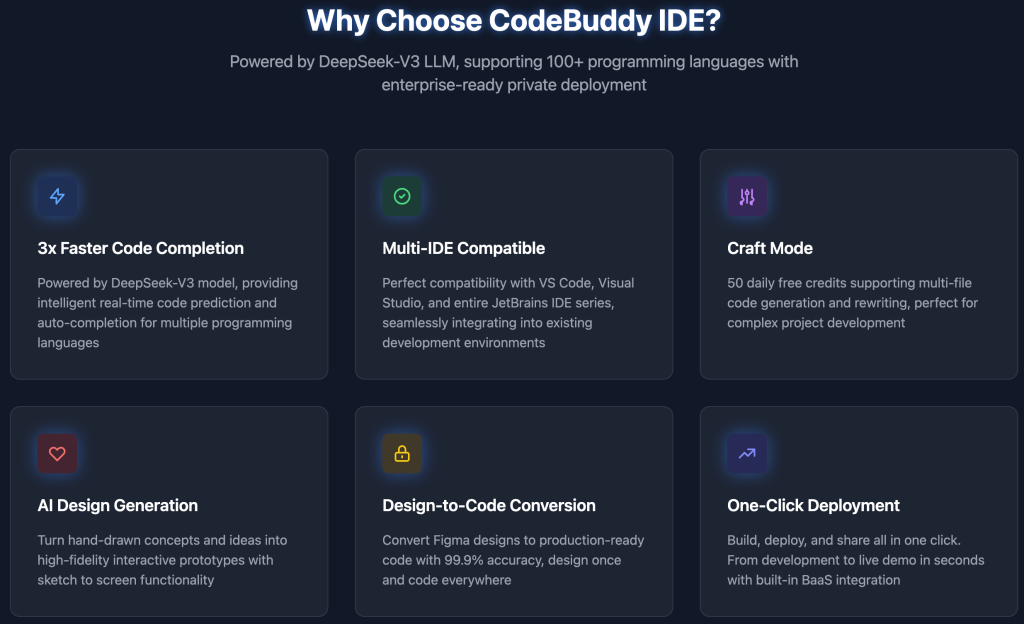
Ⅱ. CodeBuddy vs. Cursor: Clashing Philosophies of AI Coding
If AI tools were vehicles, Cursor is a pro racer’s supercar, while CodeBuddy is an autonomous bus for public transport. Despite shared tech foundations (Claude, GPT, etc.), their philosophies diverge:
| Dimension | CodeBuddy | Cursor |
|---|---|---|
| Core Mission | End-to-end automation (product to deployment) | Developer productivity booster |
| Killer Feature | Figma-to-code / 1-click deployment | 200k context / cross-file refactoring |
| Interaction | Visual UI + conversational commands | IDE-embedded chat/agents |
| Target User | Product managers, designers, full-stack devs | Pro coders / AI engineers |
| Cost | Free beta (500 premium AI credits) | Pro: $20/month + usage-based fees |
Technical Deep Dive:
- Complex Tasks: CodeBuddy compressed a 2-day e-commerce project to 2 hours; Cursor excels in single-file coding (123ms autocomplete) but requires manual oversight for multi-step tasks.
- Context Awareness: CodeBuddy auto-indexes repos and Git branches; Cursor needs manual file selection.
- Deployment: CodeBuddy’s built-in CloudBase/Supabase publishing lets designers ship apps; Cursor stops at code generation.
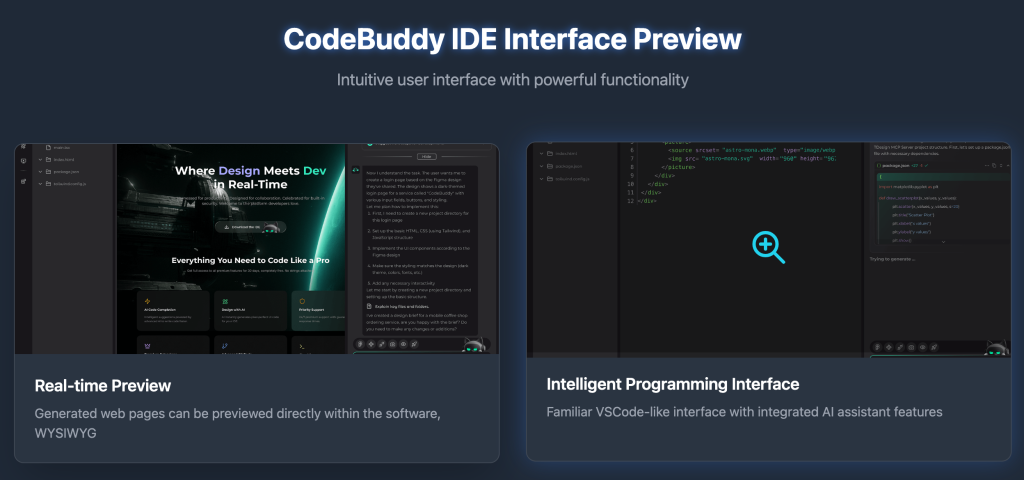
Ⅲ. Who Wins in the CodeBuddy Era? New Roles, New Workflows
CodeBuddy enables democratized development:
- Product Managers: Generate PRDs → launch prototypes, skipping endless review meetings.
- Designers: Adjust Figma elements → see live updates in production (“design is development”).
- Developers: Transition from coders to AI strategists, focusing on core logic and guardrails.
One developer blogged: “I spent $700 outsourcing an order management page before. Now, I deploy it over coffee in 20 minutes.”
Ⅳ. Shadows & Light: Is CodeBuddy the Ultimate Solution?
Despite its brilliance, challenges remain:
- Logic Limits: Requests like “build a distributed inventory system” still require human debugging.
- Homogenization Risk: Auto-generated UIs risk looking template-driven.
- Security Gaps: Designer-led deployments might bypass compliance checks.
Yet evolution is rapid. The beta already integrates MCP toolchains, letting users create custom commands (e.g., Ctrl+Alt+R for Redux slices) and deploy private AI environments via Docker.
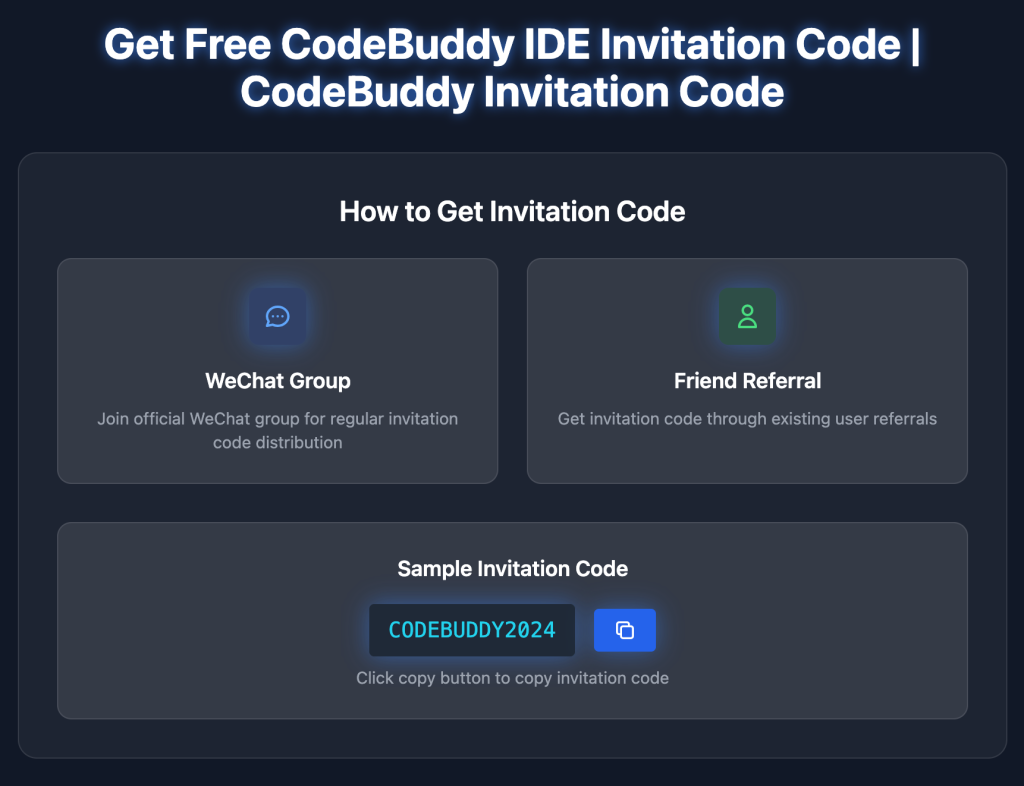
Epilogue: When Ideas Break Free from Code
CodeBuddy marks an inflection point: Development transforms from specialized skill to universal capability. Just as digital cameras liberated photography from darkroom technicians, CodeBuddy returns the power of creation to anyone with an idea.
URL:https://codebuddyide.net/
When a product manager ships a data dashboard solo, or a designer tweaks animations by speaking, we witness more than tooling progress—we see the rewriting of human-technological collaboration. In this new era, value shifts from “lines of code written” to “real problems solved.”
The next decade’s greatest tech equalizer may not be cheap compute—but CodeBuddy tearing down the “syntax barrier.”
